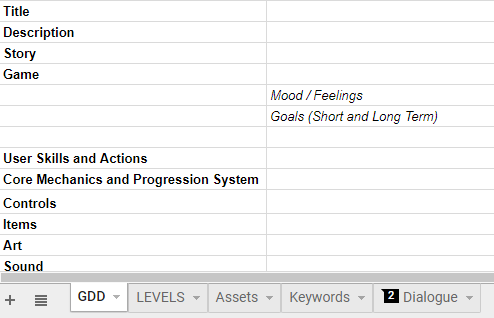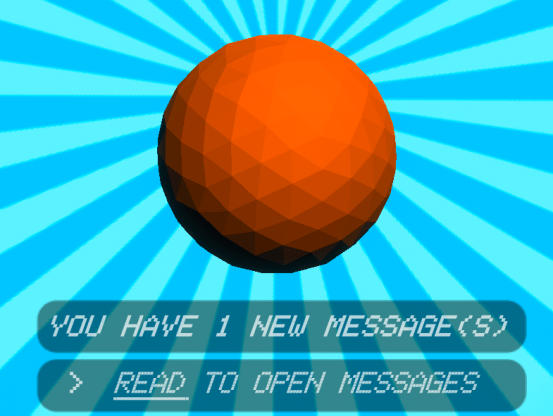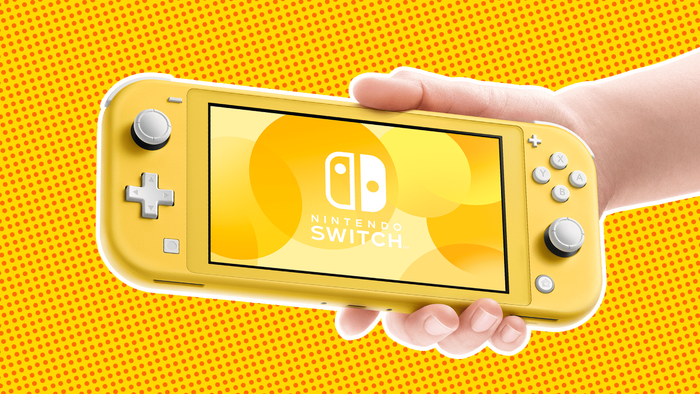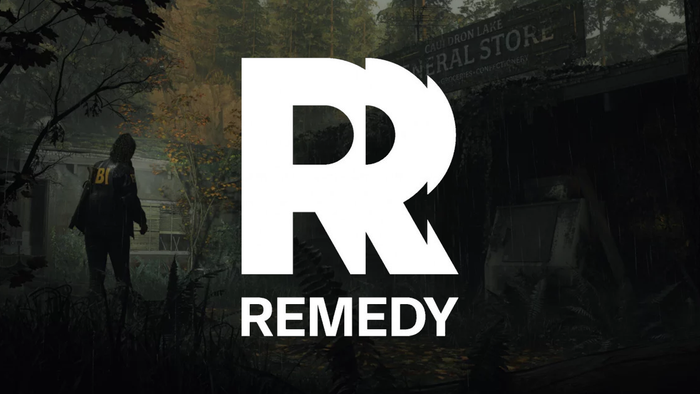9 things I learnt about participating in game jams when you're not a developer!
Game jams can be daunting when your background isn't in development. There are surprising ways you can contribute outside of code, art & design and you can learn a lot in a short space of time. Here are some ways to get the most out of them as a non-dev!

Game Jams are somewhat mysterious phenomena to me. I’ve been to one before (interview here), which I loved but it had been a while. My background in games covers a range of UX, market research and social media related things, working with developer teams but not actually developing the games. So, I decided to push myself and signed up to #jupijam (by Jupiter Hadley – @Jupiter_Hadley), unsure of what I could contribute but willing to give it a try.
Here are 9 things I learnt despite not being of a development background.
1. Think about what you can bring.
When I first joined my team, I was asked “what hard skills do you have?” and I froze. What practical skills could I bring that would be helpful? That’s when the imposter syndrome went into overdrive but I decided to break down what roles I’ve taken before on game and non game projects, listing them and seeing what skills I already had.
I break games, critique builds, the UX and provide recommendations / feedback = Design / QA?
Love organising, managing and helping guide a vision = Production?
Have blogged, written essays and event descriptions = Copywriting and narrative?
Despite not having specific, refined or years of experience in certain areas, your skills are transferable, regardless of how far away from #gamedev they seem. Specific game related skills are NOT required to be able to contribute. Your unique blend of experiences, background and skills will be valuable in some shape or form even if it’s not obvious to you straight away.
If you’re worried how you could make a game, join a team and focus on one part of the project that you feel you can add to rather than worrying about having to do all tasks by yourself.
2. Learn a new skill and challenge yourself.
Game jams are a safe environment to be big, bold and explore, use this to your advantage. You may feel out of place and finding your footing it tough, but that doesn’t make you any less capable.
Do something you haven’t done before, maybe help out different teams through testing their game. What’s the worst that could happen? You try something new and realise you’re great at it and enjoy it or find out it’s not your thing? Well, that’s some self development right there. You’re in a creative environment where all mistakes are happy mistakes, right?
3. Go simple but be open.
Going down this route makes the experience less intimidating and stressful.
Think about the basics: Is there a basic game and feedback loop? Are the necessary buttons working as intended?
Focus on one or two mechanics. As Quang Nguyen (@asobitech) stated “it’s better to have something small and well made than something big that may not function or be as strong.”
If you find that you are doing great, then be open to new features or ideas but keep them as stretch goals till the basics are well done.
4. Manage your time well.
Time management usually goes through the roof, where scrapping ideas or starting new builds half way through isn’t uncommon – do try to avoid this though. What you can do:
Plan ahead and plan for things that could make you fall behind schedule. Don’t make it too rigid, having a general idea of what you want to achieve is great but what you start with isn’t always going to be what you finish with. New ideas, tools and priorities may pop up and so you will need to adapt and iterate as you go along. Prioritise what’s important in terms of urgency and importance, if that helps!
Pool ideas, brain storm and do some free association. Think of media outside of games for inspiration. Take an hour or so to just to think and discuss ideas, maybe paper prototype, think about how you’re going to approach this. Having somewhat of a game plan can help you be confident and get started.
Know that motivation is fleeting but discipline can be incredibly powerful and give you that nudge that you need to get through it all. Motivation won’t help in the long run especially when you’re tired.
Use tools to help you manage your time
Slack – for communicating with your team and seeing you’re on the same page
Google Docs / Sheets / Trello – track everyone’s tasks, what needs to be done and what’s completed.
A basic game design document – the basics of the game are written and it’s a great reference point, which saves time. See below for an example of simple one we used.

A basic GDD with seperate pages for further details
5. Breaks aren’t a luxury, they’re a core part of your development process.
There is the common trope that people will consume lots of coke, caffeine and pizza just so they can stay awake and finish their game. It’s unhealthy, destructive and can probably make you less efficient.
Taking time away from your screen allows you to take a breather, clear your mind and rejuvenate yourself. Sleep. Go for a walk, get a meal and stay hydrated. Chat with others at the game jam.
Including breaks within your game plan allows you to collect yourself and bring a fresh pair of eyes back, most likely noticing things you hadn’t before. Your productivity will increase.
If it’s a great game jam, they’ll tell you to go home, remind you to take breaks and eat something, which we had at #jupijam, with food being provided to us.
6. UX and testing are huge part.
It’s great when your game is functional, but is it fun?
It’s interesting that UX is an area that is overlooked. Thinking about what experience you want the player to have is a core part of the design. Missing it out means there can be a disparity between the design of your game and what your player actually experiences. So what can you do?
Ask yourself: What do you want the player to feel, learn and get our of your game? What goals do they have and what makes them want to play? How can you get them to feel these things? Will players understand what they need to do? Is the friction intentional or a bug? Is this accessible? Coming from a UX analysis background, these are some questions I ask when I test builds and their usability.
Are the developers taking into account the impact of their design choices? Looking outside of your bubble is paramount to progress, as is understanding what you think players would do versus what they actually do, which will be different. For example, I often see problems with the onboarding process, because it’s assumed that what the player intuitively knows what to do when playing. There is a bias that because you know how to play, the play will too. Incorrect assumptions, not being objective and biases can be harmful.
Many don’t feel ready enough to have their build tested because perfectionism is a thing. But testing and iterating on your game is one of the best things you can do and can be a quick and effective feedback collection period. It’s scary, but worth it – have someone test after your first build rather than later avoids flaws becoming too complex. Do not put it off because of time pressures as not including it may increase your workload later on.
If you’re not doing programming or design, ask if you can play through the game and tell your team what you (as a player) don’t understand but also love. Collecting lots of feedback helps!
 After many iterations, this is the overall look my team came up with for our game.
After many iterations, this is the overall look my team came up with for our game.
7. It’s not unusual to end up with a game you’re not fully that happy with.
The end goal isn’t about winning or creating the best game ever. Your game will not be perfect, it may have bugs or crash at certain points and that’s okay! Flip the situation and think about what you gained rather than what you didn’t, being competitive can make things worse. You:
gained new perspectives on how to solve problems and came up with new ideas
discovered new skills you didn’t know you had
showed yourself that you can do a project in a short given space of time and improve on it
collaborated with some great people in a team
worked under pressure and made progress
spent time into nurturing the creative part of yourself
You did a great job, choosing to commit to a project, commiting to a deadline and pushing yourself at levels that you felt comfortable.
8. You may realise that game jams aren’t your thing – that’s okay!
These events are great at reviving creativity, inspiration and the like in a supportive environment however they’re not the only way. Being in that creative atmosphere can be motivating but if it’s too much it’s okay to leave and try again another time or find another development activity works better.
Maybe participate in online only jams, try out #dailydev, play people’s games from game jams and derive some inspiration. Even if you choose to participate again or not, you exposed yourself to a new way of learning and creating that you can take back to other projects.
9. All advice is bad advice ~ a great point from Rami Ismail (@tha_rami) during his talk after the jam.
These are insights based on one person’s perspective, so what I state as ‘good’ or ‘bad’ is reliant on my subjective experience. See what information here you feel you can apply to yourself, whereas other parts may not be as applicable. It really is about devising your own space and seeing what suits you going forward!
Game jams like other activities are awesome for self development, they’re a great opportunity to let loose and make anything and everything. No matter how things turn out, there are always so many takeaways and you never know what might come out of it!
Read more about:
BlogsAbout the Author(s)
You May Also Like













